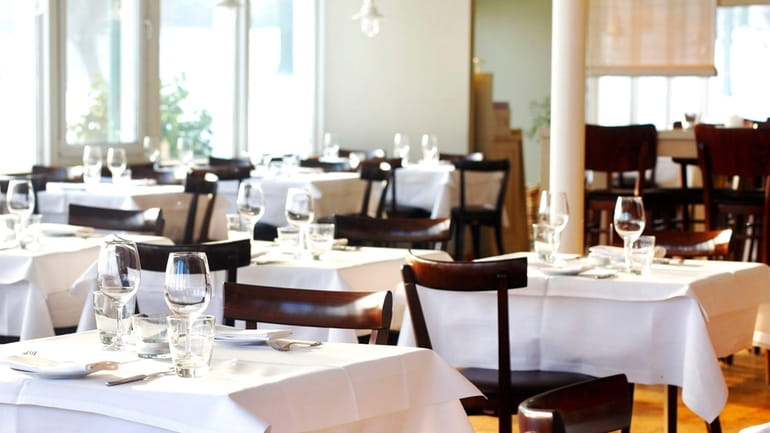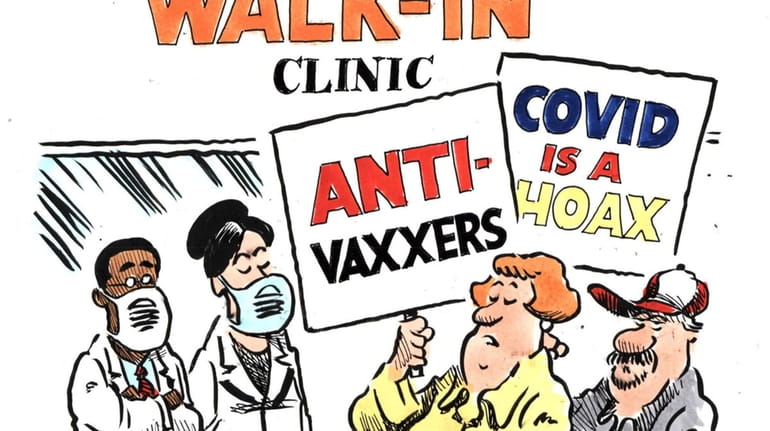Tales of disgust from an ex-health inspector

Empty tables in a restaurant Credit: iStock
In the 1990s, I was a restaurant inspector for the Nassau County Department of Health. While many, many eating establishments were run well, I saw a lot of disturbing things go on in kitchens. I had a rat run over my foot, saw nose-picking sandwich makers and viewed a basement littered with rat traps that were full. These made me want to run.
Such was the case with a place I inspected in Syosset a year or so after I was hired.
I entered during the daytime and found the dining room to be dimly lit. The owner was behind the host station near the entrance. He wore a suit and appeared to be in his late 40s. He grabbed a menu, but then his eyes quickly fell to my clipboard. Before he had a chance to speak, I said, "Hi, I'm from the department of heath, and I'm here to do an inspection."
"Can you come back another time?" he asked.
"No, you're here now, and I'm here now," I said. "Besides, you aren't even busy."
With that, I walked past several booths before swinging open the doors to the kitchen. The owner was on my heels.
A grimy, wet, dirty-rag smell wafted through the air as workers dressed in white performed their various tasks. One loaded the dishwasher, another stirred soup and another put items in the walk-in refrigerator.
The proprietor and I stood near a Bain-Marie, a unit that uses hot water to keep food warm. Inside a minute, I saw cockroaches scrambling all over the unit. Apparently, insects have food-temperature preferences as well. I started writing violations down on my clipboard. Then, things got worse.
Roaches started to fall on me from the ceiling. The insects fell lightly and delicately. In my mind, I heard words to a pop song, "It's Raining Men." However, my brain substituted "roaches" for the word "men."
The establishment was so overrun with these insects that the idea of it operating for one minute more appalled me. I felt compelled to seek a voluntary closure. If the owner didn't agree, he'd face enforcement action that would likely shut the place anyway. Voluntary closure until a clean inspection was the health department's version of a plea bargain.
As I started to speak to the owner, a few of his multi-legged guests began falling on him as well. He quickly brushed them off his shoulders.
Aggravated, and not wanting to have insects become entangled in my hair, I said, "Let's speak outside." We walked outside through the kitchen door.
"You can't continue to operate in this manner," I told him. "It is a complete disgrace! Besides, when your customers start seeing roaches in the dining room, you won't have much of a business anyway. You need to close now!"
The guy was still hesitant. So I called a supervisor on the phone, and he came down within a half-hour and repeated what I'd said. The owner finally agreed to close down for fumigation.
Despite what many people think, the price of a meal has no bearing on the cleanliness or integrity of the kitchen or the food. I've seen burger joints that were immaculate. So as a former restaurant inspector, there are a few things I look for at restaurants: I like when I can see at least part of the kitchen from the dining room. If a cook or a server keeps wiping his or her mouth or coughing into his or her hands, I'm gone. Personnel who eat while serving or preparing food are also bad signs because what's in their mouths can easily fall into a patron's food. Dark dining rooms turn me off because creatures can hide in dimly lit places. A clean bathroom with soap and running water are crucial. If there's no soap, then the workers aren't washing their hands when they use the bathroom.
And to this day, every time I hear a certain song, I remember the creepy, crawly brown rain.Reader Jackie Minghinelli lives in Halesite.

